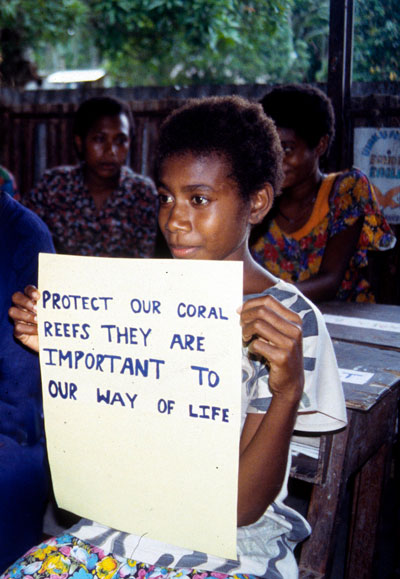Last October, Indigenous representatives from coastal communities along the Huon Gulf in Papua New Guinea held a three-day forum to reject proposed deep-sea tailings placement (DSTP) plans at the Wafi-Golpu mine. In response, the national government agreed to put the project on hold—only to reverse its stance just days later.
Despite the setback, community opposition to the plan to dump 13 million tonnes of toxic mine waste into coastal waters critical for marine biodiversity and local livelihoods has only continued to grow.

Over the past year, community organizers from Lae Lutheran Youths gathered thousands of signatures from impacted communities up and down the coast opposed to DSTP, arguing they were not properly consulted before the approval of the environmental permit. These signatures formed the backbone of a legal challenge brought by the Morobe provincial government, where the Wafi-Golpu project is located. In September, a PNG judge granted the Morobe government’s request to stay the mine’s environmental permit.
“We are building people power,” said a Lae Lutheran Youths organizer. “Even with the law on our side this time, we are demonstrating that the lives of people are important and the government and companies have to listen to us. They need to see that the people are concerned about the ocean.”
The court’s decision represents another setback for the Wafi-Golpu project, owned by Australia’s Newcrest Mining and Harmony Gold, and for any company trying to use DSTP. In Indonesia, companies withdrew permit requests for DSTP at nickel processing facilities and the government stated that it would not issue permits for new projects using the practice. In Norway, Europe’s largest copper company, Aurubis, cancelled its offtake agreements with ocean-dumping company, Nussir ASA following months of protests over plans to dump thousands of tonnes of mine waste into a protected fjord. The decision effectively eliminated key financing for the mine’s construction.
Organizers in PNG plan to defend the court’s decision and will continue to gather signatures and educate local landowners and coastal communities about the important step forward in the fight to end ocean dumping once and for all.
Your Support Makes Our Work Possible
Earthworks helps families on the front lines of mining, drilling, and fracking. We use sound science to expose health, environmental, economic, social, and cultural impacts of mining and energy extraction. To support our efforts, please consider a tax-deductible donation today that will go toward our work reforming government policies, improving corporate practices, influencing investment decisions, and encouraging responsible materials sourcing and consumption.
